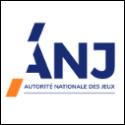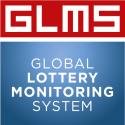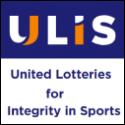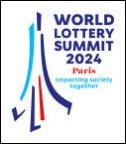Gambling Under the Magnifying Glass
Chairman’s blog
T HE HAGUE (June 1, 2024) — The (online) gambling market is probably not a ‘hot topic’ in the formation process in The Hague, but (political) attention to gambling and the risks associated with it is growing. That is not surprising: stories of players who have gotten into trouble due to their gambling behavior occur regularly. That kind of excess is unacceptable, and it is certainly good that attention is being paid to it. However, it remains important not only to zoom in on specific cases, but also to place things in the correct – somewhat broader – perspective and view the market from above.
HE HAGUE (June 1, 2024) — The (online) gambling market is probably not a ‘hot topic’ in the formation process in The Hague, but (political) attention to gambling and the risks associated with it is growing. That is not surprising: stories of players who have gotten into trouble due to their gambling behavior occur regularly. That kind of excess is unacceptable, and it is certainly good that attention is being paid to it. However, it remains important not only to zoom in on specific cases, but also to place things in the correct – somewhat broader – perspective and view the market from above.
This starts with a topic that directly touches on the aforementioned excesses: supervision by the Gaming Authority (Ksa). Earlier this year, the Consumers’ Association drew attention to the fact that, due to a lack of false IDs, the Ksa has no insight into what happens behind the login wall at providers. The TV program Kassa also recently responded to this. Could it be that the supervisor has no insight at all into what is happening behind the front door of the providers? A very valid question.
The answer is less shocking than it seems at first glance: no, the Ksa does not have to proverbially lie in the bushes with a telephoto lens to try to look behind that door. However, due to a lack of access to fake IDs (linked to fictitious bank accounts), Ksa inspectors are not given ‘disguised’ access to legal gambling sites and cannot make deposits, which means they cannot participate in gambling games themselves.
We raised this problem with Minister Weerwind for Legal Protection in our legislative letter last year in the summer and we are discussing it. We can use the data vaults (CDBs) of providers to see, among other things, how they interact with their players. However, this is not easy or complete and it is not ideal, searching through the data ‘haystack’. I don’t want to beat around the bush, we could work much more effectively with the help of ‘mystery shopping’. Precisely because we then have better insight into the (marketing) techniques that providers use to attract and retain players.
Binding players was also reflected in the Consumers’ Association study: providers would encourage players to gamble excessively with prohibited tricks. It is good that attention is being paid to the seduction techniques that providers use, but an important part of the tricks and techniques that emerged in the research did not necessarily appear to be a violation. That doesn’t mean we wouldn’t condemn this kind of behavior: something can be harmful without being illegal. When these matters are brought to our attention or we discover them ourselves, we explicitly include them in discussions with providers.
There is also some discussion about these conversations with providers. To what extent can you, as a supervisor, engage in discussions with the market(parties) that you also need to be able to point out? Are providers too involved in the development of legislation and regulations? We recently announced that our updated Responsible Gaming Policy Rules are available for consultation with interested parties. In these policy rules we provide, among other things, more guidance on how providers fulfill their duty of care. Is it wise to let them discuss this?
There too, the situation is slightly more nuanced than is sometimes suggested. Yes, providers will have access to the proposed changes (but also other parties, such as lawyers, ministries and of course experts in the field of addiction and its prevention). No, however, that does not mean that we will strip down or scrap proposals because they are unwelcome to providers.
It does mean that we ask providers what possible problems they see with the feasibility of the proposals in practice. Because when we impose rules that are then unclear or unenforceable, we still don’t gain anything from it. While it is important that we tighten the duty of care as quickly and effectively as possible. There is no point in building castles in the air.
Placing developments and events in the right perspective is the basis for this blog. This sometimes also means that you not only look outward, but also inward. This of course also applies to us as the Gaming Authority. In response to the various excesses we have seen, we not only looked at the interpretation of the duty of care in a broad sense, but also initiated a thorough investigation into specific online providers. If violations are found, this can lead to serious sanctions.
Such a sanction process is effective and has a preventive effect, because the wallet is often where it hurts. However, it is time-consuming and therefore a long-term process. That is why we are going to focus more on making ‘short hits’. For example, when we receive signals about providers who may be going far beyond their limits, we can contact them immediately. What happened here, what did you do to prevent it and to what extent did you act or fail to act culpably? This way the provider knows that he is under a magnifying glass. By communicating about these types of conversations and warnings, we also show other providers what we consider desirable or undesirable and how we deal with signals from outside.
Finally, in this context I cannot resist emphasizing once again that providers must be aware of the fact that the focus is explicitly on them. I have mentioned it before: the large (negative) attention for the market is partly due to the own actions of online providers. In many cases, excesses can only occur because the player who loses control is given the opportunity to continue playing. Because a provider does not intervene quickly enough or does not take the right measures.
I am still convinced of the added value of a legal market, but it is primarily up to the providers to make that happen. Not only providers, but also the Ksa itself has to fulfill its role in this. We do this not only with sweet talk, but also with targeted supervision and the right measures. Our commitment will be to scale this up in the coming months. Because whether you look close-up or with a bird’s eye view, playing safely should always come first!
SOURCE: de Kansspelautoriteit (Gaming Authority).

























